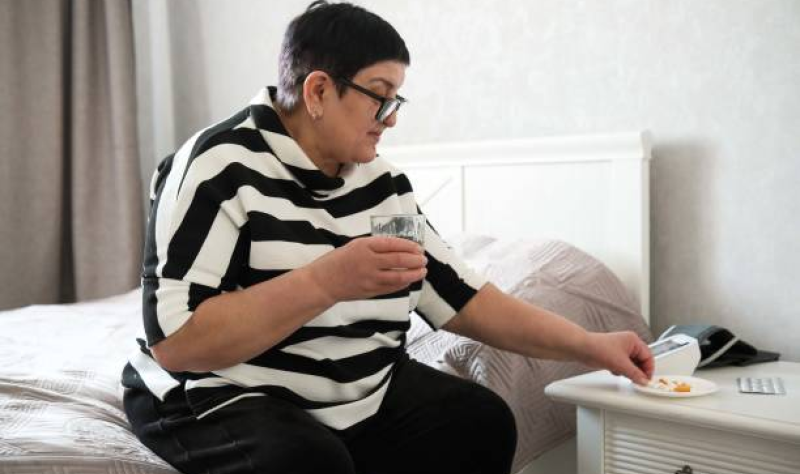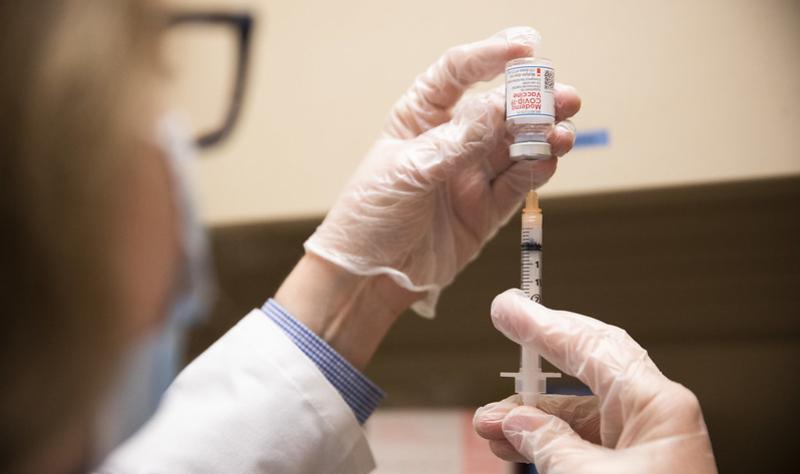Study: COVID-19 vaccines linked to temporary menstruation changes


Nearly two years since the COVID-19 vaccine rollout, a study from the British Medical Journal reported a link between COVID-19 vaccines and temporary, slightly longer menstrual cycles.The study took two groups, one vaccinated and the other unvaccinated. Of the vaccinated group, it was found that the vaccinated individuals had an increase in cycle length, about less than one day in change compared to the unvaccinated individuals. There was also no change in the length of bleeding. The authors looked at nearly 20,000 people, who recorded their data using the app Natural Cycles between Oct. 1, 2020, and Nov. 7, 2021. Nearly 10,000 vaccinated participants had received the Pfizer/BioNTech vaccine, although participants had also received the Johnson & Johnson, Moderna, and Oxford-AstraZeneca vaccines, among others.The U.S. cohort study comprised about 4,000 vaccinated and unvaccinated individuals.The study found that those who received two doses of a COVID-19 vaccine in a single cycle had an adjusted increase in cycle length of more than three days compared to unvaccinated individuals.Ruby Duarte, a Northern California resident, is one of the dozens of women who shared their experiences with KCRA. She said she endured a life-changing event that lasted about six months, adding that she couldn’t go to work and had to go on disability. She said her cycle was so long and heavy that she couldn’t go anywhere for fear of having an accident, but even after getting checkups, she was told that there wasn’t anything wrong with her.”They did labs, ultrasounds — you know, anything that you could check out to see that would be causing the bleeding and I had nothing. There was nothing, no fibroids, no uterine masses; anything like that,” Duarte said.After the second dose, Duarte ultimately decided to not get boosted and opted for a religious exemption.While the changes were also reported to be temporary, experts say that more testing into menstrual irregularities is needed for the most severe cases.Information about women’s menstrual cycles is not collected during clinical trials, including the trials for the COVID-19 vaccines.”Anecdotally, I have had a lot of patients who have been coming in with differences in their periods,” said UC Davis obstetrics and gynecologist Nandini Nittur.Dr. Nittur added that COVID-19 and the vaccines were unprecedented and therefore, the impacts of both are still being analyzed.”I think that we probably need to look into it a lot more and just kind of get more of these individual accounts and get a little bit more of this information before we can make kind of these generalizations about what the effects potentially could be,” Nittur said.The research has some limitations, the authors say, including that people using hormonal birth control were not participants and researchers were limited in the number of post-vaccine cycles.
Nearly two years since the COVID-19 vaccine rollout, a study from the British Medical Journal reported a link between COVID-19 vaccines and temporary, slightly longer menstrual cycles.
The study took two groups, one vaccinated and the other unvaccinated. Of the vaccinated group, it was found that the vaccinated individuals had an increase in cycle length, about less than one day in change compared to the unvaccinated individuals. There was also no change in the length of bleeding.
Advertisement
The authors looked at nearly 20,000 people, who recorded their data using the app Natural Cycles between Oct. 1, 2020, and Nov. 7, 2021.
Nearly 10,000 vaccinated participants had received the Pfizer/BioNTech vaccine, although participants had also received the Johnson & Johnson, Moderna, and Oxford-AstraZeneca vaccines, among others.
The U.S. cohort study comprised about 4,000 vaccinated and unvaccinated individuals.
The study found that those who received two doses of a COVID-19 vaccine in a single cycle had an adjusted increase in cycle length of more than three days compared to unvaccinated individuals.
Ruby Duarte, a Northern California resident, is one of the dozens of women who shared their experiences with KCRA. She said she endured a life-changing event that lasted about six months, adding that she couldn’t go to work and had to go on disability. She said her cycle was so long and heavy that she couldn’t go anywhere for fear of having an accident, but even after getting checkups, she was told that there wasn’t anything wrong with her.
“They did labs, ultrasounds — you know, anything that you could check out to see that would be causing the bleeding and I had nothing. There was nothing, no fibroids, no uterine masses; anything like that,” Duarte said.
After the second dose, Duarte ultimately decided to not get boosted and opted for a religious exemption.
While the changes were also reported to be temporary, experts say that more testing into menstrual irregularities is needed for the most severe cases.
Information about women’s menstrual cycles is not collected during clinical trials, including the trials for the COVID-19 vaccines.
“Anecdotally, I have had a lot of patients who have been coming in with differences in their periods,” said UC Davis obstetrics and gynecologist Nandini Nittur.
Dr. Nittur added that COVID-19 and the vaccines were unprecedented and therefore, the impacts of both are still being analyzed.
“I think that we probably need to look into it a lot more and just kind of get more of these individual accounts and get a little bit more of this information before we can make kind of these generalizations about what the effects potentially could be,” Nittur said.
The research has some limitations, the authors say, including that people using hormonal birth control were not participants and researchers were limited in the number of post-vaccine cycles.



